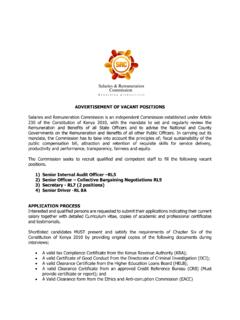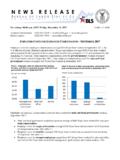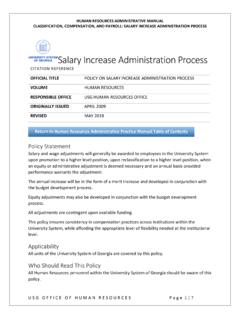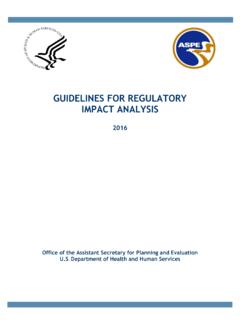Transcription of ALLOWANCES POLICY GUIDELINE FOR THE PUBLIC SERVICE
1 ALLOWANCES POLICY GUIDELINE . FOR THE PUBLIC SERVICE . The POLICY GUIDELINE is issued in discharge of the Salaries and Remuneration Commission mandate under Article 230(4) of the Constitution of Kenya, 2010, and in line with the principles provided in Article 230(5) of the constitution, and Section 12 of SRC Act, 2011. October 2021. Rewarding Productivity TABLES OF CONTENTS. DEFINITION OF 2. ALLOWANCES POLICY GUIDELINE FOR THE PUBLIC SERVICE .. 3. Preamble .. 3. Background .. 3. Rationale for the POLICY 4. Objectives of the POLICY Guidelines .. 5. Stakeholder Engagement 5. Scope of Application .. 5. POLICY Guidelines .. 5. Affordability and Fiscal Sustainability .. 6. Ratio of ALLOWANCES to Gross 7. Double Compensation .. 8. Transparency, Fairness and Equity .. 8. Categorisation of ALLOWANCES .. 9. Facilitative ALLOWANCES .. 10. Streamlining of ALLOWANCES .. 10. Pensionable Pay .. 11. Transitional Clause on Operationalisation of the ALLOWANCES POLICY GUIDELINE .
2 11. Requirements to be submitted to the Commission .. 11. Implementation Road Map of the ALLOWANCES POLICY GUIDELINE .. 13. Page21ofof14. Page 14. DEFINITION OF TERMS. Allowance: Is any periodic or one-off amount that is payable to PUBLIC officers over and above basic salary. PUBLIC Office: An office in the national government, a county government or the PUBLIC SERVICE , if the remuneration and benefits of the office are payable directly from the Consolidated Fund or directly out of money provided by parliament. PUBLIC Officer: Any State officer or any person, other than a State officer, who holds a PUBLIC office. State Office: An office designated as a State office under Article 260 of the Constitution of Kenya. State Officer: A person holding a State office as defined in Article 260 of the Constitution of Kenya. PUBLIC SERVICE : The collectivity of all individuals, other than State officers, performing a function within a State organ.
3 PUBLIC SERVICE Institutions: Institutions established by the government and that exist to provide PUBLIC services to its citizens. Page 2 of 14. Page 3 of 14. ALLOWANCES POLICY GUIDELINE FOR THE PUBLIC SERVICE . Preamble The Salaries and Remuneration Commission (SRC) is established by Article 230 of the Constitution of Kenya, 2010, and is mandated to set and regularly review the remuneration and benefits of State officers, and to advice the national and county governments on the remuneration and benefits of all other PUBLIC officers. The advice of the Commission is a mandatory prerequisite in the determination of remuneration and benefits for all PUBLIC officers, as provided through the legal interpretation of Article 259(11) of the constitution. In discharging its mandate, SRC is guided by the constitutional principles set out in Article 230(5). of the constitution, and Section 12 of SRC Act, 2011. (a) The constitutional principles are: (i) The need to ensure that the total PUBLIC compensation bill is fiscally sustainable.
4 (ii) The need to ensure that the PUBLIC services are able to attract and retain the skills required to execute their functions;. (iii) The need to recognise productivity and performance; and (iv) Transparency and fairness. (b) Statutory requirement: Equal remuneration to persons for work of equal value, as required by Section 12 of SRC Act, 2011. These POLICY GUIDELINE is issued pursuant to SRC's mandate as set out in Article 230(4) of the constitution, and in line with the principles provided in Article 230(5) of the constitution, and Section 12 of SRC Act, 2011. Background The absence of clear and comprehensive POLICY guidelines to facilitate effective management and administration of ALLOWANCES in the PUBLIC SERVICE has led to proliferation of ALLOWANCES , distortions in remuneration, unfairness in pay, lack of transparency, accountability and inequity. Pursuant to the provisions of Articles 230(5) and 41(2)(a) of the constitution, in 2019, SRC.
5 Undertook a Study on ALLOWANCES Payable in the PUBLIC SERVICE . The study identified 247 different ALLOWANCES paid to PUBLIC officers, which account for 48 per cent of the total wage bill. The findings of the report of the study were presented at the National wage Bill Conference convened from 26. to 28 November 2019. The 8th Summit Resolutions on the National wage Bill Conference, 2019, resolved, among other things, that an overarching POLICY framework be developed for streamlining Page 3 of 14. Page 4 of 14. the management of ALLOWANCES to improve transparency, accountability, equity and fairness in payment of ALLOWANCES and to ensure affordability and fiscal sustainability of the wage bill. Based on the National wage Bill Conference resolution, the Commission undertook to develop POLICY GUIDELINE on ALLOWANCES for the PUBLIC SERVICE . SRC has identified the following ten (10). strategic areas to be addressed through these POLICY guidelines: (i) Increase in PUBLIC SERVICE wage bill within an environment of fiscal and revenue constraints.
6 (ii) Disparity in rates of ALLOWANCES paid;. (iii) Proportion of ALLOWANCES in relation to basic pay;. (iv) ALLOWANCES paid for factors that are already compensated for through the basic salary;. (v) Proliferation of ALLOWANCES in number and amounts;. (vi) Varying nomenclature of ALLOWANCES ;. (vii) Facilitative ALLOWANCES that have taken a remunerative dimension;. (viii) Unclear and varied justification for payment of some ALLOWANCES ;. (ix) Redundant ALLOWANCES ; and (x) Disparity in definition of pensionable salary. Rationale for the POLICY GUIDELINE The absence of a clear and comprehensive POLICY framework to guide management and administration of ALLOWANCES in the PUBLIC SERVICE has led to proliferation of ALLOWANCES and different justification, eligibility criteria, rates and modes of payment. This has led to lack of transparency, inequity and unfairness in coverage, multiplicity and high proportions of ALLOWANCES to basic salaries and consequently disparities in the gross pay paid to PUBLIC officers.
7 The rationale for development and operationalisation of this POLICY GUIDELINE is, therefore, to streamline the management of ALLOWANCES to improve transparency, accountability, equity and fairness of pay, pursuant to SRC's mandate, as set out in Article 230(4) of the constitution, and in line with the principles provided in Article 230(5) of the constitution. Further, the POLICY GUIDELINE will address challenges associated with high administrative and management cost of processing ALLOWANCES , and payment of ALLOWANCES that lead to distortions in remuneration and violation of the principle of equal pay for work of equal value'. Page 4 of 14. Page 5 of 14. Objectives of the POLICY GUIDELINE The overarching objective of the POLICY GUIDELINE is to provide a structured approach for streamlining management and administration of ALLOWANCES so as to improve transparency, accountability, equity and fairness, thereby, ensuring that the total PUBLIC compensation bill is affordable and fiscally sustainable.
8 The specific objectives of the POLICY GUIDELINE are: (i) To support realisation of an affordable and fiscally sustainable remuneration and benefits regime that is aligned to the tenets of national development;. (ii) To promote the principles of transparency, fairness, and equity in the determination of ALLOWANCES ;. (iii) To provide standard classification/categorisation of ALLOWANCES in the PUBLIC SERVICE ;. (iv) To harmonise and rationalise ALLOWANCES across the PUBLIC SERVICE ;. (v) To institutionalise procedures for determination of ALLOWANCES in the PUBLIC SERVICE ; and (vi) To institutionalise a synchronised mechanism for review of ALLOWANCES that allows consistency in principles and application, and supports retention and attraction of requisite skills. Stakeholder Engagement Process The POLICY guidelines were developed through a consultative and participatory process with PUBLIC participation being undertaken as required under Articles 10 and 232 of the constitution.
9 The Commission received and considered feedback from various stakeholders covering both the national and county governments and the PUBLIC . Scope of Application The POLICY GUIDELINE shall be applicable to all PUBLIC SERVICE institutions both at the national and county government levels in the setting and review of ALLOWANCES for both State officers and other PUBLIC officers. PUBLIC SERVICE institutions shall be expected to comply with the POLICY GUIDELINE pursuant to Article 259(11) of the constitution. POLICY Guidelines The POLICY Guidelines are issued in discharge of SRC's mandate under Article 230(4) of the constitution and in line with the principles provided in Article 230(5) of the constitution, and Page 5 of 14. Page 6 of 14. Section 12 of SRC Act, 2011. The purpose of the POLICY guidelines is to provide a structured approach for streamlining management and administration of ALLOWANCES in the PUBLIC SERVICE . Notwithstanding the need to enhance equity and fairness through streamlining of ALLOWANCES .
10 The Commission shall take into account existing contractual obligations, relevant laws and regulations. ALLOWANCES that are currently obtaining shall, therefore, continue to be paid until the Commission issues a further advisory. The Commission developed ALLOWANCES POLICY GUIDELINE for the PUBLIC SERVICE ', taking into account constitutional principles and Section 12 of SRC Act, 2011. To achieve transparency, accountability, equity and fairness in payment of ALLOWANCES to ensure affordability and fiscal sustainability of the wage bill in the PUBLIC SERVICE , the following POLICY guidelines shall apply: Affordability and Fiscal Sustainability The current PUBLIC SERVICE wage bill consumes a larger percentage of revenue than the target set in the PUBLIC Finance Management Act, 2012, and a larger percentage of Gross Domestic Product (GDP) compared to the average for developing countries. The PUBLIC SERVICE wage bill in Kenya has been growing over time from Ksh 558 billion in the financial year (FY) 2013/14 to Ksh 827 billion in FY 2019/20, within an environment of revenue and financing constraints.









